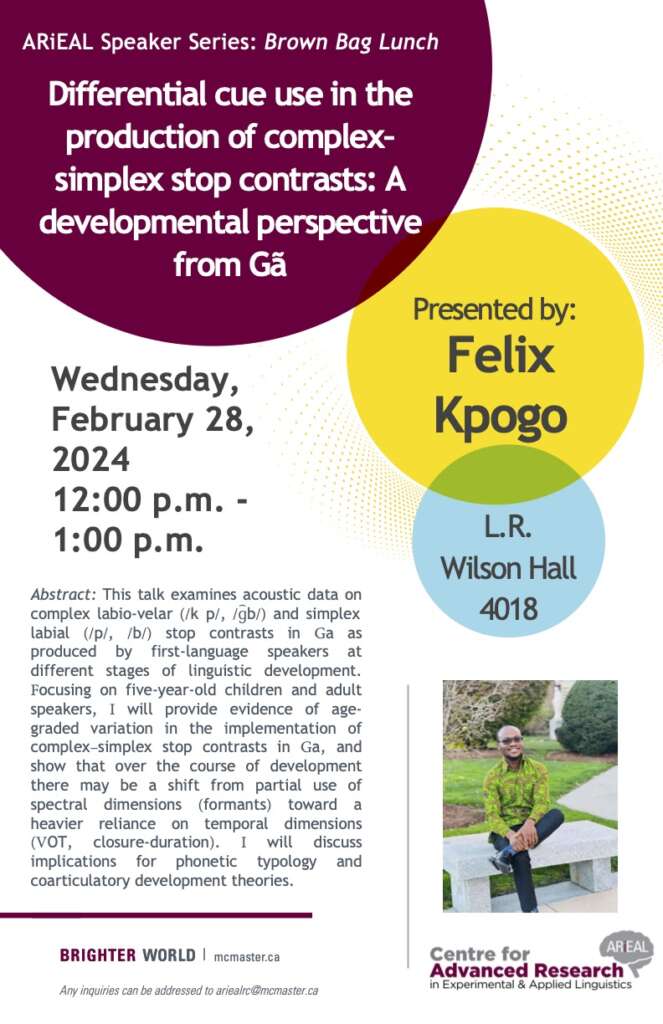Please join us for Felix Kpogo’s Brown Bag Presentation on February 28, 12pm, LRW 4018.
Felix Kpogo is a visiting international student at ARiEAL and the Phonetics Lab. He is an inaugural member of our International Scholar Award Program cohort.
Felix will present a paper titled “Differential cue use in the production of complex–simplex stop contrasts: A developmental perspective from Gã.” Felix is a PhD Candidate in Linguistics at Boston University. Prior to that, he earned an MA in Linguistics from Florida International University and a BA in Linguistics & Ghanaian Language (Akan) form the University of Cape Coast(Ghana). This is a great opportunity for all of you to learn more about the cutting-edge work of one of our international visiting researchers!
Felix provided the following summary:
In this talk, I will present developmental acoustic data on production of complex (/k͡p/, /ɡ͡b/) and simplex (/p/, /b/) stop contrasts in Gã (Niger-Congo, Kwa). Previous adult studies indicate that complex stops differ from simplex stops in closure duration, second formant (F2) transition on release, and voice onset time (VOT). However, little is known about how children acquire complex–simplex stop contrasts.
This talk examines acoustic data on complex labio-velar (/k͡p/, /ɡ͡b/) and simplex labial (/p/, /b/) stop contrasts in Gã as produced by first-language speakers at different stages of linguistic development. Focusing on five-year-old children and adult speakers, I will provide evidence of age-graded variation in the implementation of complex–simplex stop contrasts in Gã, and show that over the course of development there may be a shift from partial use of spectral dimensions (formants) toward a heavier reliance on temporal dimensions (VOT, closure-duration). I will discuss implications for phonetic typology and coarticulatory development theories.


